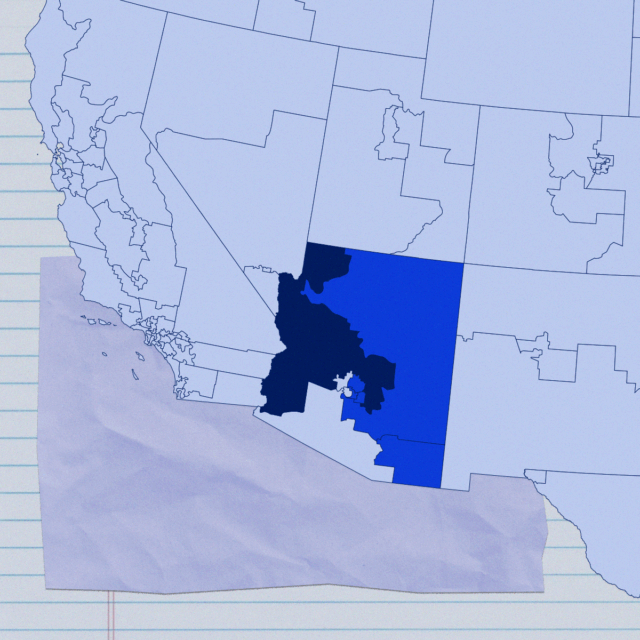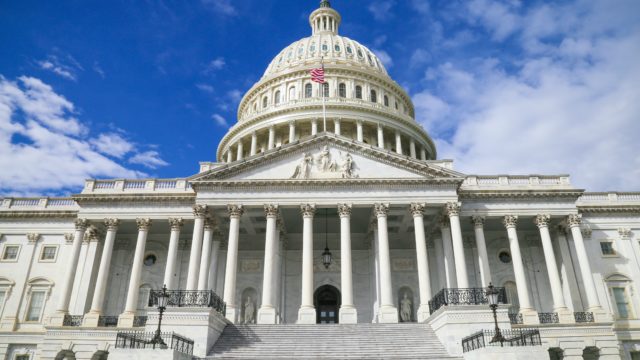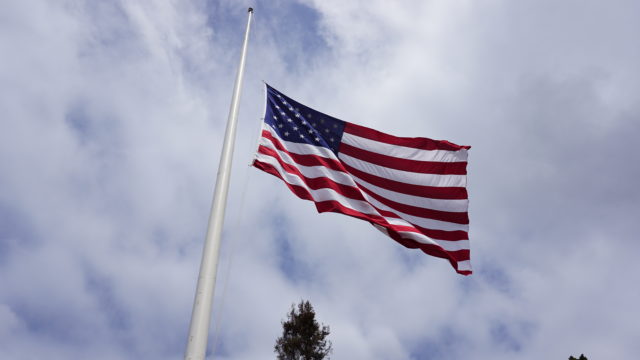Waiting Periods
Waiting Periods
What does this solve?
A waiting period law requires a certain number of days to pass between the purchase of a gun and when the buyer can actually take possession of that gun. This creates a buffer between someone having a suicidal crisis and access to a gun.
Creating a buffer between someone having a suicidal crisis and access to a gun can be the difference between life and death. Waiting period laws require gun buyers to wait until a certain period of time has passed before they are able to access a gun they have purchased.
Which states require a waiting period before gun purchases?
13 states have adopted this policy
Waiting Periods
Alabama has not adopted this policy
Waiting Periods
Alaska has not adopted this policy
Waiting Periods
Arizona has not adopted this policy
Waiting Periods
Arkansas has not adopted this policy
Waiting Periods
California has adopted this policy
Waiting Periods
Colorado has adopted this policy
Waiting Periods
Connecticut has not adopted this policy
Waiting Periods
Delaware has not adopted this policy
Waiting Periods
Florida has adopted this policy
Waiting Periods
Georgia has not adopted this policy
Waiting Periods
Hawaii has adopted this policy
Waiting Periods
Idaho has not adopted this policy
Waiting Periods
Illinois has adopted this policy
Waiting Periods
Indiana has not adopted this policy
Waiting Periods
Iowa has not adopted this policy
Waiting Periods
Kansas has not adopted this policy
Waiting Periods
Kentucky has not adopted this policy
Waiting Periods
Louisiana has not adopted this policy
Waiting Periods
Maine has adopted this policy
Waiting Periods
Maryland has adopted this policy
Waiting Periods
Massachusetts has not adopted this policy
Waiting Periods
Michigan has not adopted this policy
Waiting Periods
Minnesota has adopted this policy
Waiting Periods
Mississippi has not adopted this policy
Waiting Periods
Missouri has not adopted this policy
Waiting Periods
Montana has not adopted this policy
Waiting Periods
Nebraska has not adopted this policy
Waiting Periods
Nevada has not adopted this policy
Waiting Periods
New Hampshire has not adopted this policy
Waiting Periods
New Jersey has adopted this policy
Waiting Periods
New Mexico has adopted this policy
Waiting Periods
New York has not adopted this policy
Waiting Periods
North Carolina has not adopted this policy
Waiting Periods
North Dakota has not adopted this policy
Waiting Periods
Ohio has not adopted this policy
Waiting Periods
Oklahoma has not adopted this policy
Waiting Periods
Oregon has not adopted this policy
Waiting Periods
Pennsylvania has not adopted this policy
Waiting Periods
Rhode Island has adopted this policy
Waiting Periods
South Carolina has not adopted this policy
Waiting Periods
South Dakota has not adopted this policy
Waiting Periods
Tennessee has not adopted this policy
Waiting Periods
Texas has not adopted this policy
Waiting Periods
Utah has not adopted this policy
Waiting Periods
Vermont has adopted this policy
Waiting Periods
Virginia has not adopted this policy
Waiting Periods
Washington has adopted this policy
Waiting Periods
West Virginia has not adopted this policy
Waiting Periods
Wisconsin has not adopted this policy
Waiting Periods
Wyoming has not adopted this policy
How it Works
When someone is considering suicide, days matter—and waiting periods can save lives.
Guns are by far the most lethal method of commonly-used methods of self-harm, with a fatality rate of about 90%. By contrast, less than 4% of people who attempt suicide using other methods will die, and the vast majority of people who survive a suicide attempt do not go on to die by suicide. Although guns are used in less than 6% of suicide attempts, more than half of suicide deaths are by gun. In a study of statewide suicide rate changes between 2013 and 2014, states with waiting periods saw a decrease in suicide rates, while those without waiting period laws had an increase.
Unlike the Charleston Loophole, which affects gun buyers whose records require further investigation to determine if they are prohibited, a waiting period applies to all gun buyers. This provides a “cooling off” period for the people who might reconsider their intentions in the interim.
Myth & Fact
Myth
Suicide is inevitable.
Fact
Suicide can be prevented. In fact, the vast majority of people who survive a suicide attempt do not go on to die by suicide. Most people who attempt suicide do not die—unless they use a gun. Across all suicide attempts not involving a firearm, 4% will result in death. But for gun suicides, those statistics are flipped: about 90% of gun suicide attempts end in death.
Featured Resources

Firearm Suicide in the United States
Firearm suicide is preventable, and addressing it is an essential element of any strategy to reduce gun violence in America.

Firearm Suicide By Congressional District
There are 52 firearm suicides on average per congressional district each year, yet there is district-level variation across the country.

Gun Suicide in Cities: The Lesser-Known Side of City Gun Violence
Rates of people who die by gun suicide in cities are on the rise, but, until now, a dearth of city-level data leaves it often overlooked.
All Resources
Waiting Periods
All Resources
Two Decades of Suicide Prevention Laws: Lessons from National Leaders in Gun Safety Policy
In order to understand the variability in state-level firearm suicide rates, Everytown has examined the role of state gun safety policies.
Everytown Research & Policy
Suicidio con armas de fuego en las ciudades: El lado menos conocido de la violencia con armas de fuego en las ciudades
Las tasas de personas que mueren por suicidio con armas de fuego en las ciudades están en aumento.
Report
The Danger of No-Questions-Asked Gun Sales Between Strangers
These stories are examples of tragedies that could have been prevented if a background check was required when the shooter bought their gun.
Fact SheetUpdate Background Check Laws
Updating federal and state laws to require background checks on all gun sales is a common-sense way to keep guns out of the wrong hands.
Fact Sheet
Those Who Serve: Addressing Firearm Suicide Among Military Veterans
Our country’s veterans are at a heightened risk of suicide, and firearms are the prevailing method of suicide among veterans.
Fact Sheet

